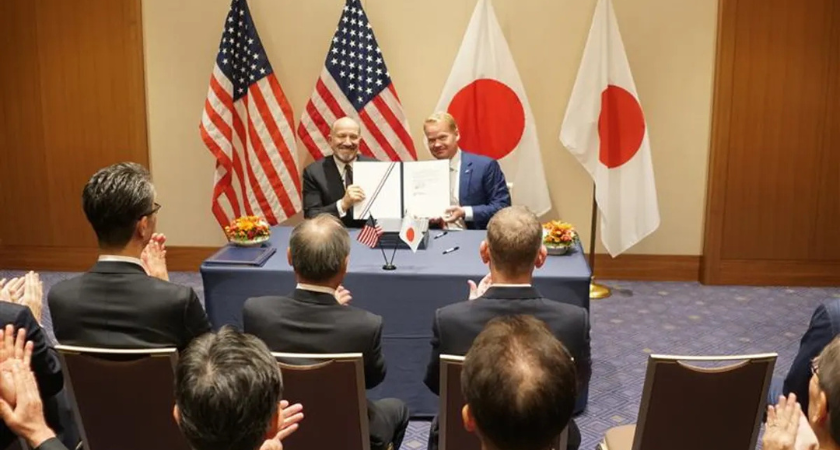
Bechtel and Kiewit have secured a major role in one of the largest foreign investment programs in U.S. infrastructure history, tied to Japan’s $550 billion pledge to expand AI-driven power, data and manufacturing assets across the country.

Bechtel, ranked No. 2 among U.S. contractors by revenue, signed a memorandum of understanding with the U.S. Department of Commerce to lead procurement, engineering and construction on critical new facilities, the company confirmed Tuesday. Omaha-based Kiewit is also listed by the White House as a key partner supporting the delivery of these large-scale projects.
The announcement was made as President Donald Trump traveled to Tokyo, where he detailed priority developments alongside Japanese Prime Minister Sanae Takaichi during the official signing ceremony.
The massive funding plan allocates up to $332 billion for energy infrastructure that will directly support new computing loads. That includes power generation projects, grid-strengthening substations, and long-distance transmission to connect advanced data facilities to reliable energy supplies.
AI growth continues to reshape construction demand in the United States, with data centers now driving most private nonresidential spending. Leading contractors have reported their backlogs expanding by up to four months thanks to the surge in hyperscale development nationwide.
In addition to power, the investment expands U.S. manufacturing of critical technology components. White House documents highlight:
Bechtel Chairman and CEO Brendan Bechtel said the initiative strengthens the nation’s competitiveness in both innovation and infrastructure:

“Leadership in technology begins with leadership in infrastructure. Before you can unlock computing power and power the next generation of AI, you have to design and build its enabling infrastructure,”
he said in a news release.
“We’re honored to play a role in this historic agreement, advancing innovation, AI leadership, and America’s energy security.”
Industry analysts say the investment could drive tens of thousands of skilled construction jobs, accelerate energy-grid modernization and solidify U.S. supply chains for semiconductor-related manufacturing. It also positions American contractors as essential partners in the global race for AI capacity.
Officials expect project announcements to roll out in early 2026, with priority buildouts concentrated in regions where power demand from data centers is already surging — including the Southeast, Mountain West and the Mid-Atlantic.
More agreements and contractor partnerships are set to be revealed as task forces finalize timelines and strategic sites.
Originally reported by Zachary Phillips in Construction Dive.